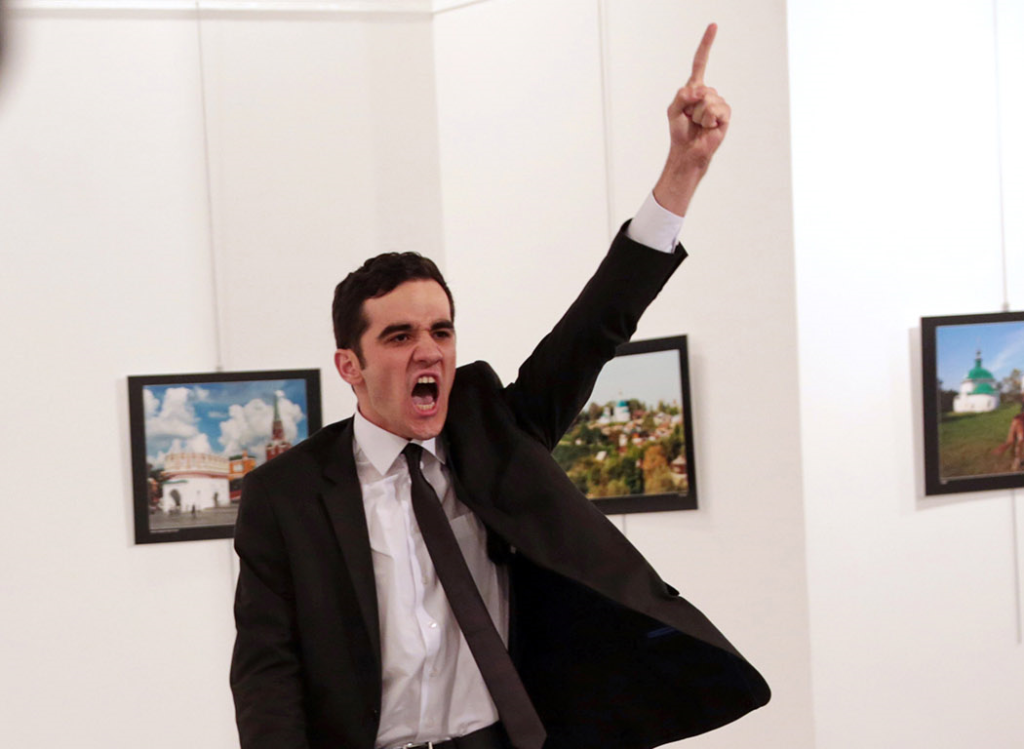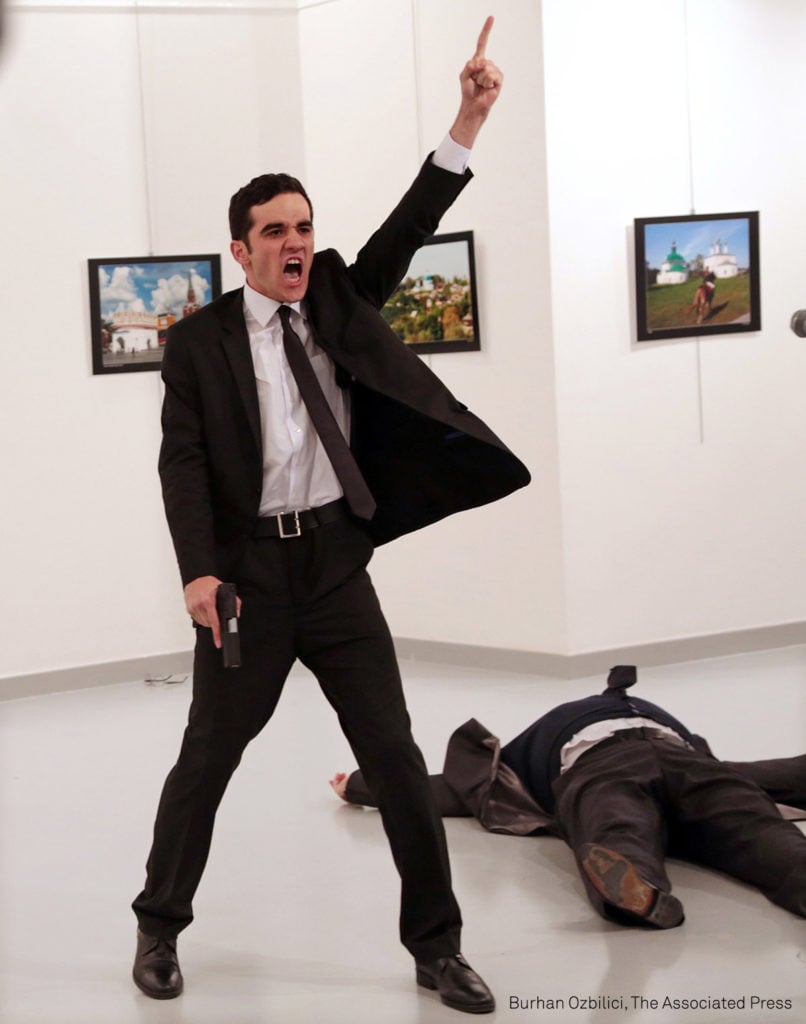Art World
Ankara Assassination Picture Wins World Press Photo of the Year
Photojournalist Burhan Ozbilici was visiting an art opening when the gunman fired eight shots.

Photojournalist Burhan Ozbilici was visiting an art opening when the gunman fired eight shots.

Alyssa Buffenstein

The World Press Photo Foundation announced today that Turkish photographer Burhan Ozbilici is the recipient of the 60th annual World Press Photo of the Year award, for his capturing of the December 2016 assassination of Russia’s ambassador to Turkey at an art gallery in Ankara.
The Istanbul-based photographer will receive a cash prize of €10,000 ($10,600) and a selection of camera equipment from Canon. The winning photograph, along with winners of the World Press Photo Digital Storytelling contest, will go on display in a travelling exhibition that will visit 45 countries.
“It was a very very difficult decision, but in the end we felt that the Picture of the Year was an explosive image that really spoke to the hatred of our times,” said member of the jury Mary F. Calvert.

Mevlut Mert Altintas shouts after shooting Andrei Karlov, right, the Russian ambassador to Turkey, at an art gallery in Ankara, Turkey, Monday, Dec. 19, 2016. Photo Burhan Ozbilici, courtesy AP.
Ozbilici is a staff photographer for the Associated Press. He was attending what was a routine gallery opening of the exhibition “From Kaliningrad to Kamchatka, from the eyes of travelers.” Although he was not on assignment, he had begun to take pictures anyway, thinking they might be useful for stories on Turkish-Russian relations. Two other photojournalists, Hasim Kilic of the Hurriyet media organization, and Yavuz Alatan of the daily Sözcü newspaper, were also in attendance.
When a man, later identified as the 22-year-old off-duty police officer Mevlut Mert Altintas, drew a gun, Ozbilici “thought it was a theatrical flourish,” he wrote for AP. Altinas shot Andrei Karlov, the Russian ambassador to Turkey, while he was delivering a speech. The attacker fired at least eight shots and shouted a speech of his own, in Turkish, including “Don’t forget Aleppo. Don’t forget Syria.”
Ozbilici continued to take photographs. “I was, of course, fearful and knew of the danger if the gunman turned toward me. But I advanced a little and photographed the man as he hectored his desperate, captive audience,” he wrote.
“This is what I was thinking: ‘I’m here. Even if I get hit and injured, or killed, I’m a journalist. I have to do my work. I could run away without making any photos … But I wouldn’t have a proper answer if people later ask me: ‘Why didn’t you take pictures?’”